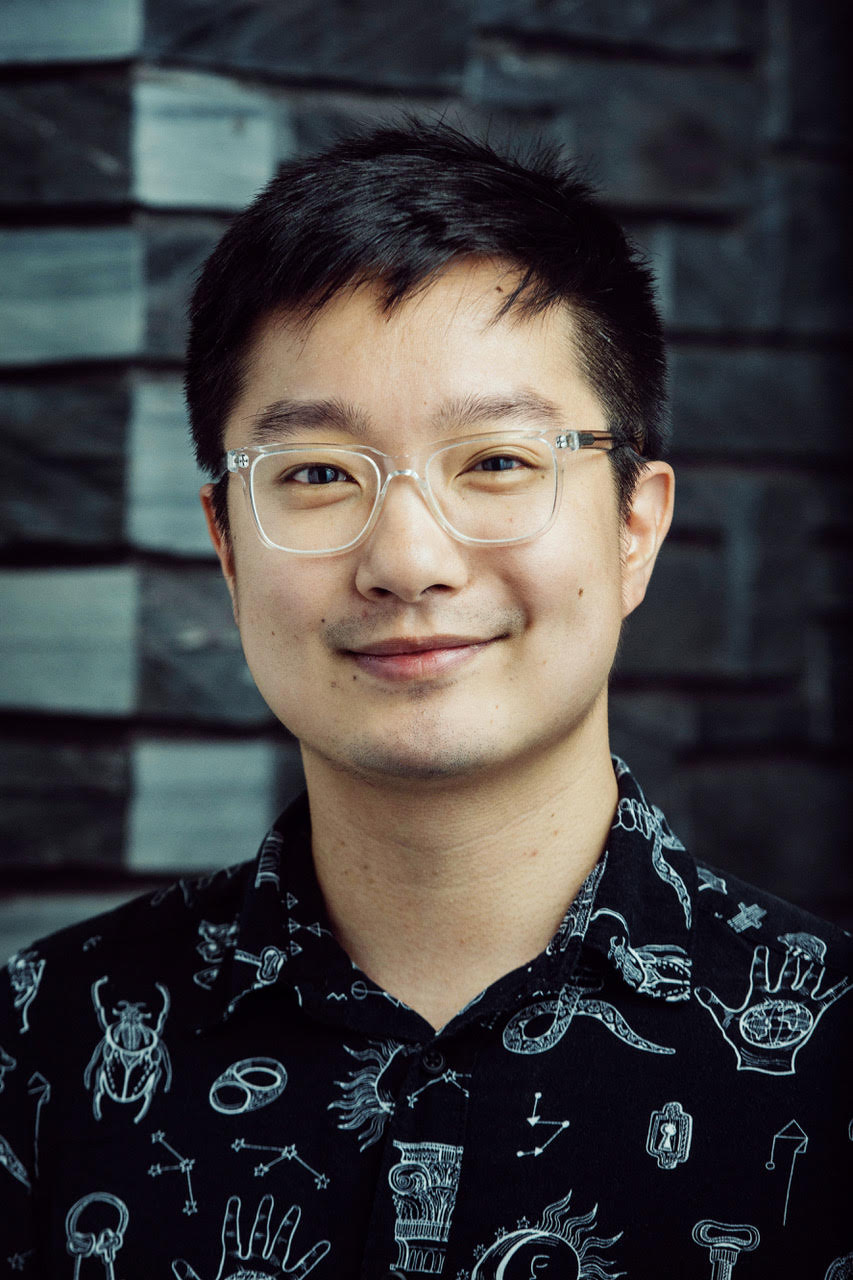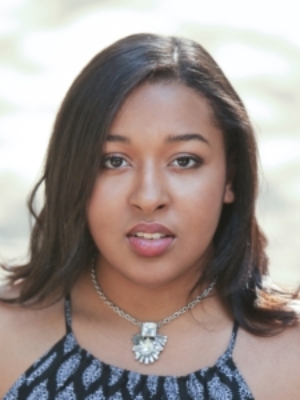LitDish: Chen Chen, Poet and Educator

Portrait by Margarita Corporan
In December, I sat down with poet Chen Chen to discuss his writing, which intersects images and metaphors, sculpting free verse and stanzas, much like his own creative and academic journey, and much like the identity he embodies as a queer person of color. A Chinese-American poet, by way of Texas, New York, and Massachusetts, Chen tells many stories in small clusters of words and phrases.
1. Who have been some of your mentors as you’ve been writing poetry?
So many. My sophomore English teacher, Ms. Liana Kish—her trust, her faith in me was an early turning point for me as a writer. To see this teacher I really respected appreciate and value my writing and my vision was really important to me.
In college, I got to work with Martín Espada, a poet teaching at UMass Amherst. I took my first poetry workshop with him. He gave us permission to write about personal subjects, the really vulnerable kind. He encouraged us to connect those to larger social issues, like immigration policy or being a queer person. Straddling the personal and political.
My thesis advisor, Bruce Smith, also influenced me. Bruce was wonderful; enthusiastic about everything poetry-related. He had this encyclopedic knowledge about poetry, historical and contemporary. He was reading new books all the time, and that was inspiring to see—you continue to learn as a writer, even after you’ve published, even after you’ve gone through an MFA program. You’re still on the road, you’re still learning.
2. Your poetry has a very essayish quality to it—it deals with a lot of personal everyday subjects. When you’re writing poetry or essays, how does your writer’s sensibility connect or blend or relate the two genres?
The poetic form has a compressed intensity to it. There’s such a focus. With the essay form, there’s more room to expand upon things. In an essay, I can wander around a little bit more; I can go on a tangent and reconnect with the main focus of the essay later. I like having that room.
3. I understand you’re currently based in New England, though you’ve gone to school in the Midwest. Where did you grow up?
I’ve lived a lot of places, but primarily Massachusetts. I was born in China and then came to the States when I was very young. We moved to Fort Worth, TX, for a bit, while my dad was studying at TCU. Elementary and middle school were in Amherst. I went to high school in the Boston area. I went back to Amherst for college. I feel like I identify most with Massachusetts—the four seasons, long winters, snow. I didn’t think of myself as a writer of place, but I see now that it is an important component in my work. When I reference trees or animals or weather patterns, it’s definitely rooted in New England.
4. What are your parents like?
They’re a mix of different values. A lot of immigrant families spend years really just trying to survive, and so what my parents valued were things they felt would benefit our survival. More practical concerns. They were definitely hoping for and pushing me toward a more practical stable career path in life. They feel better about it now, but it’s definitely taken them some time.
5. Are either of your parents artistic?
My mom is a really good storyteller. I think she was an early source of inspiration. She would tell stories about our family in China, how she grew up on a farm, how she had lots of responsibilities. My dad practices calligraphy and is interested in Chinese opera, so I’d hear that around the house. They’re both fantastic cooks, which is definitely a creative practice. Also, growing up in a bilingual household, having to navigate language from an early age—I got to see how language is something creative too. I think that definitely influenced me as a writer.
6. What was it like growing up Chinese-American, carrying all of these pieces of your identity?
During elementary school, we were surrounded by other Chinese immigrant families in the Amherst area. After those years though, sadly, everyone moved away—their parents finished school and got jobs in other places, sometimes far away. That initial community I had was scattered. After that, I started to feel more like an outsider. School was predominantly white, and I was also starting to discover my sexuality. I came out to my parents at the end of middle school. They didn’t take it very well. They didn’t understand how to process it. A lot of my writing deals with that relationship. I was very close with my parents. It was hard, them not understanding what I was going through.
I felt like I had to separate parts of my identity. Because I went to progressive schools, I thought “Oh, I can be out in school and find friends.” My school had a really good GSA that I got involved with, but I had to hide that part of myself at home. My friends didn’t really understand what it meant for me to be Chinese-American. I felt split. Turning to writing in high school was a way that allowed me to bridge all these experiences. In a story or in a poem, I can bring these different aspects of myself together and have them speak to each other and coexist in the same room, or the same body. It was a way for me to have agency. I could imagine a space for my full self that I felt didn’t really exist.
7. How has vulnerability filtered into your poetry? How have you navigated speaking about your experience where that hasn’t always been safe or welcome or understood?
It’s taken time and practice to figure out how to communicate that in a way that would reach someone else. It was a messy process, a lot of trial and error, a lot of false starts, a lot of drafts. My first chapbook, which came out in 2015, Set the Garden on Fire, helped me discover that I could write autobiographically but still have that be transformed in some way through the writing. In my second chapbook, Kissing the Sphinx, which came out a year later, I was experimenting with imagined narratives. I needed to write both of those chapbooks separately, one autobiographical, one fictive, just to figure out my interest in both those things.
Part of what I was exploring was how a traumatic event or memory is reshaped as you’re telling it. The central event, or one of the central events in my book, is this one night when the speaker, a younger version of myself, tries to come out to his parents. It does not go well, and he contemplates running away from home. He climbs this tree, thinking about where he is in his life, and then eventually does return home, but there is this wound in the relationship between him and the parents.
In the book, I return to that scene in a bunch of poems throughout the collection and look at it from different angles. You can retell something that happened to you with a completely different tone or perspective. Like some of the poems are funnier than others, some are angry, some of them are looking at this memory in order to figure out what the speaker wants for the future. Each of the poems does something kind of different, but I feel like I needed to do those earlier experiments—those two chapbooks—to figure out what it was I needed from these different approaches.
8. What keeps you writing? What would you say guides your process?
Community. Community guides me the most. Writer friends who check in with you and keep you accountable to your writing goals. Sharing writing with friends. Continuing to get that feedback, talking about what’s on your mind as a writer, thinking about these subjects, these aspects of craft. So often having a conversation with a writer friend will open up my perspective and get me thinking about my own writing in a different way. I’ll return to a draft I’m working on and suddenly realize, Oh, this is what it needs, and I wouldn’t have been able to do that on my own. Being in conversation with other writers is really important to me.
9. Is there any advice you would give to poets, up-and-coming in the world?
Being patient with yourself is really important. It doesn’t have to happen all at once. It might take longer, it might not, but practice gentleness toward yourself. Writing is a lifelong commitment. Remind yourself that you’re in it for the long haul. I think what’s important is that you’re telling the truth and that you’re doing that in your own ways. Live as a writer, as much as you can. Pay attention to language wherever it comes from.
10. What would you say to queer poets of color?
Find each other. Build community. We can’t do this by ourselves. Reach out. Now is the time. I think we have to really cherish how far we’ve come and keep pushing.
Regan Humphrey is an award-winning writer and artist. She is an MFA candidate in YA fiction & playwriting at Antioch University. She holds a BA in creative arts, writing & performance, a BA in cross-cultural relations, and an MA in applied psychology. Her work has been published online by Poems by New Yorkers, Antioch’s Social Justice Newsletter, and Lunch Ticket, and in print by Gilded Dragonfly Books and Bard College at Simon’s Rock.





